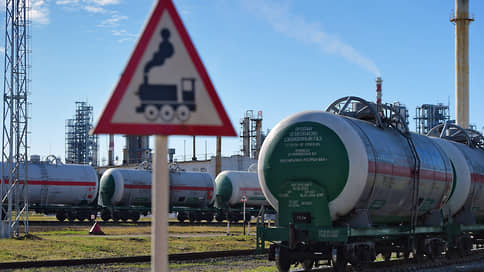The government will not increase the priority of oil products transportation

The government does not yet see the urgent need to increase the priority of the transportation of oil products by rail, moving them from the sixth to the third category of priority. Regulators are ready to stimulate supplies for problems with the export of fuel from factories that create risks of deficiency. The market participants agree that the order is not the main task now. According to them, significant problems with the transportation of petroleum products are primarily associated with the coordination of Russian Railways OJSC applications for fuel removal from factories, receiving goods for transportation and unloading with exchange customers.
There is no need to increase the priority of transportation of oil products by rail. This was announced by Deputy Prime Minister Alexander Novak, speaking of a proposal to transfer the transportation of oil products from the sixth stage of the rules of non-discriminatory access (PND) to the third. “There are such proposals on the part of oil companies, from the Ministry of Energy,” he explained. “They are considered taking into account the current PND. If there are problems with the supply and removal of oil products from oil refineries, which will affect the domestic market and a shortage of production, in turn, this will affect prices. Then, of course, we will, as last year, provide priority export. ” Now there is no such urgent need, Mr. Novak said.
Last year, the assignment of the third category of priority from March in the framework of the then temporary rules for the priority on the railways (from January 1 replaced by the PND) led to an increase in their transportation – as evaluated by Russian Railways in the introduction of this measure, by 2.7 million tons. But, since an increase in the shipment of oil cargo, in contrast to the export of coal from Kuzbass, is not authorized by the presidential decree, these cargoes cannot be counted on the third category within the framework of the PND.
In January 2025, 17.6 million tons of oil and oil products were immersed on the network of Russian Railways, which is 0.2% less than a year earlier, a monopoly reported.
At the same time, Kommersant’s interlocutor in the industry clarifies, against the background of the low base of January 2024, exported east. In February, the transportation of fuel was noticeably sank. According to Russian Railways, oil and oil load loading decreased by 9.9%last month, to 15.5 million tons. However, when February, the leap of 2024 by 28 days, the decrease is not so sharp (6.7%). According to Kommersant, the average daily loading of oil cargo in February was 4% worse than in January, and 9% than in February 2023. Export was reduced even more – by 7% and by 14%, respectively.
The priority excites oil products not primarily, says one of the operators working in the field of their transportation. So, at the end of January, several companies reported the refusal of Russian Railways in the reception of oil products with refineries for transportation or delayed density (See “Kommersant” from February 13).
The Kommersant source in the oil industry recalls that the refineries due to the high cost of tank capacities and a slight size of reserves are extremely sensitive to export and even a daily failure can lead to critical consequences.
Today, the main problems, says Kommersant's interlocutor in the transport industry, firstly, in the coordination of the form for the transportation of goods of the GU-12. “The Russian Railways OJSC does not coordinate anything,” he says, adding that today the oil workers are forced to ask for Russian Railways for coordination as additional those plans that were previously constant.
Secondly, the source “Kommersant” indicates, even the coordination of the GU-12 does not mean anything: if loading exceeds the technical plan, they will not take anything. There are no clear terms for taking wagons for transportation, the interlocutor “Kommersant” continues: the cars are immersed, and the Russian Railways does not accept them for transportation. Thirdly, there is oversight at the unloading stations at the excavators of exchange trading: there is still no work mechanism that eliminates the accumulation of wagons at the unloading. Another source of Kommersant in the industry notes the decrease in the recent hardware weight of representatives of the oil sector relative to JSC Russian Railways: “Where the oil industry workers used to be confident before, now they can only ask.”
In the Russian Railways OJSC, it was explained that the transportation of oil products, especially in the internal message, is under special control, and the main reason for the failure to fulfill the plan is to not provide cargo to transportation in coordinated areas. The February decrease in the loading of the monopoly as a whole associated with a change in the conjuncture of commodity markets. Loading of oil cargo, noted in Russian Railways, was reduced against the background of redistribution of applications between the production sites of oil holdings.








